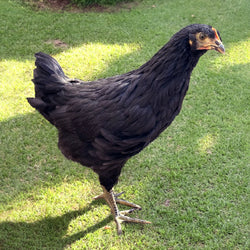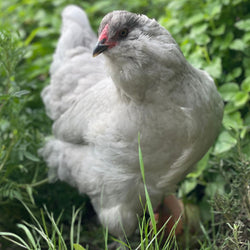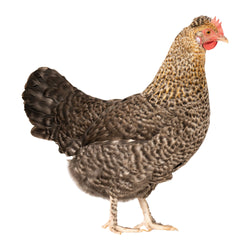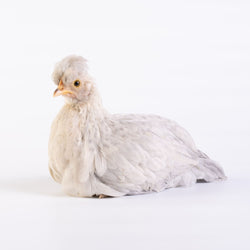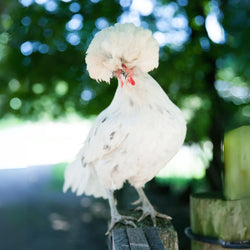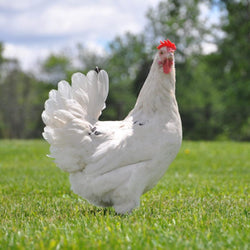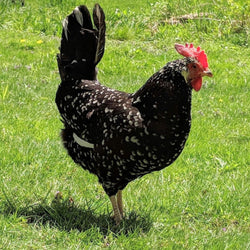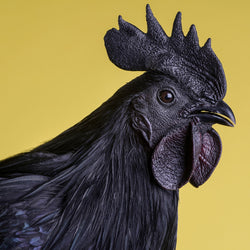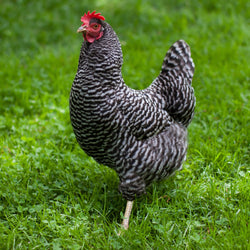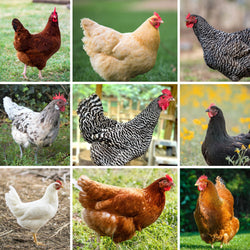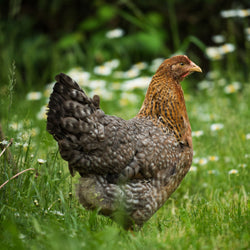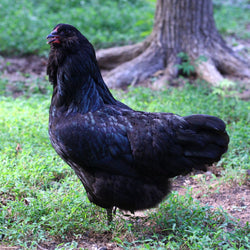page=4/--
Frequently Asked Questions
Here we answer the most commonly-asked questions about ordering, chicken care, and more.
What's the right ratio of males to females for ducks and geese?
Duck male-to-female ratios In flocks, the general recommendation is one drake for every 4-6 ducks. During breeding season, that may be reduced (for the sake of getting a better fertility percentage) to a pair: 1 drake with 1 duck, or a trio: 1 drake with 2 ducks, or a pen: 1 drake for 3-5 ducks. As you can see, smaller ratios are fine for the breeding season only. If you plan to keep them together all the time, 1 drake for every 4-6 ducks is recommended. If you have too many males, they will become very aggressive sexually and may...
Read MoreDo geese make good pets? Can't they be mean or aggressive?
You may be surprised to find that the answer to both questions is...yes! Geese can make great pets, and yes, they can sometimes be aggressive. Before that surprises you too much, think about "man's best friend": the dog. Sometimes dogs can be aggressive, right? In fact, one reason some people keep a dog is to provide protection to their family or belongings. In spite of the fact that they can be aggressive, dogs make excellent pets. The same is true with geese. Like dogs, they are very smart, can form tight bonds with humans, and can be aggressive in certain...
Read MoreHow can I handle an aggressive goose?
Geese can make great pets, and thankfully, most geese do not exhibit aggressive behavior. Among those that do, it is usually confined to the breeding and nesting season in spring and early summer. Geese are generally excellent parents, and like any good parent, want to protect their offspring from potential threats. Thankfully, whether during breeding season or not, with proper management strategies, you can help your geese be less aggressive and you can learn to handle more contentious individuals effectively. General strategies for handling geese First, never taunt or harass your geese, and do not allow children to do so,...
Read MoreHow do I pick up a goose?
In a word--carefully! Geese are very strong animals, and you will want to learn to catch and hold them properly to avoid getting pummeled by their wings, bitten, or scratched. It's also important that you pick them up properly to keep the bird from being injured as well. You'll want to avoid chasing geese over uneven, rocky, or otherwise dangerous terrain. Geese feet and legs can be injured, and you can be injured as well if you're not careful! Ideally, you will gently herd the goose into the corner of their pen or fence. You can use broom handles or...
Read MoreWhat happens if a duckling or gosling is incorrectly sexed?
It's always disappointing when a bird isn't sexed correctly, especially if your "girl" ended up being a "boy" and was the family's favorite bird! Unfortunately, since waterfowl sexing is an art, not a science, sometimes errors do occur. To report an error, first be sure you are reporting during the correct reporting period! Early or late reports can't be processed. Sexing errors must be reported when the waterfowl are 10 to 22 weeks old. Second, to make your report, email, chat, or give us a call at 908-795-1007. Third, be sure to provide the name under which the order was...
Read MoreWhat kind and how much feed should I give my flock at each stage of development?
As baby chicks and waterfowl grow, their nutritional needs change. It can be confusing to know how much and what kind of feed to give them at each stage of development. Please don't lose sleep over this issue! We have all the help you need for your growing chickens, ducks, and geese right here. One note before we get started: All feed manufacturers have recommended stages for their feed. This guide is a commonly accepted standard; however, you should follow the directions on the feed you choose for optimum benefit from that brand. Regardless of their age, one principle always...
Read MoreHow can I tame ducks and geese?
As prey animals, ducks and geese are concerned about any potential threat, including you! Since we are large, threatening creatures with forward-facing eyes, waterfowl assume humans are predators (a valid assumption in many cases) and they are understandably wary about coming close to us. This natural fear has protected them for millions of years, and it's something you'll have to work to overcome if you want your ducks and geese to be tame enough to trust you, come to you, and potentially even eat out of your hand. As you work to tame your waterfowl, it is important to remember...
Read More







"The Clubhouse" Coop
Easy to assemble and built to last, the Clubhouse Coop is the perfect starter coop for a small flock.
